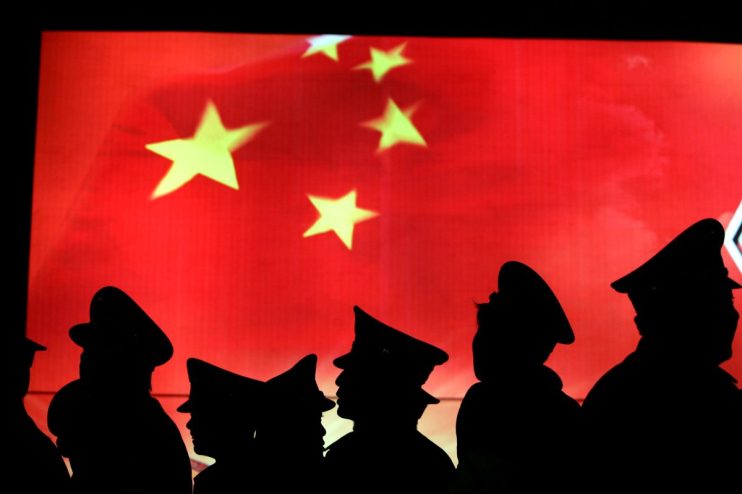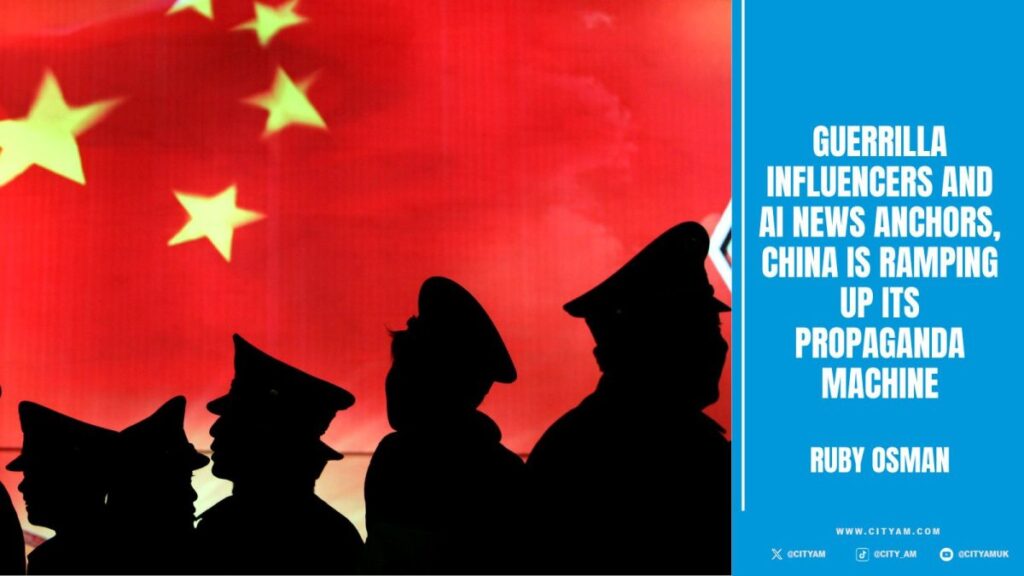Sunday, May 19, 2024 6:00 a.m.

From influencers to state media, China's propaganda machines are embracing AI – but there are limits to what the technology can do with bad storytelling, writes Ruby Osman
The generative AI game has a new player: Chinese state media. Over the past month, CGTN, the international arm of China Central Television, has been rolling out a series of sophisticated new AI-generated videos. Fractured America is a glossy short video series that focuses on class inequality, labor strife, and the military-industrial complex through the eyes of (cartoonized) ordinary Americans.
It's uneven in places, downright weird in places, and the narration leaves plenty of room for complaint, but it's still far above the output of the usual state media.
The generative AI boom comes at just the right time for China's English-language state media. More than a decade after President Xi Jinping first told officials to “tell the China story well,” Beijing has turned its attention to new markets in the Global South and U.S. hostility has grown. In the global information space, journalists are under new pressure to get China's message across at a time when they feel that they are being left behind in the global information space. It is not enough to be seen as an economic partner. The point under Xi is to seek legitimate recognition of China's status as a cultural, geopolitical, and historical power.
Of course, part of this promotion is to emphasize China's role as a global force that brings about achievements and stability in domestic development. But just as important is the contrast with the United States, a superpower that state media reports is dangerously divided at home and making dangerous demands abroad.
The result is stories like Fractured America, which claims that defense companies are “turning global conflicts into cash” and that “politicians say sweet things, but then they high-five the high rollers.” content was born.
This is also a multimedia initiative. Earlier this month, China's state news agency Xinhua took aim at U.S. debt levels with a new AI-generated message. Song, share on XThe argument is, “Debt is scary and there is no solution, but if you have money, you can dance.'' This message is driven home by his music videos, which feature a series of Uncle Sam cartoons that become increasingly grotesque. Like all good propaganda, it works because it taps into the real concerns of many Americans.
And its ability to sharply attack America's internal divisions is likely to continue to improve, and this is just the beginning of a learning curve. The propaganda potential of generative AI is immense. Think better visuals, more natural language, less resource demands, and most importantly, smarter, more sophisticated ways to understand what actually speaks to foreign audiences. As media combines new technology with old complaints, video, text, and images can all become more sophisticated and more effective.
And despite the horrors of Tiktok, it's a toolbox that works on any platform. AI content can and is already spreading across Youtube, Facebook, and X. State media are not the only ones heeding the call from the top to “tell the China story well.” A wave of “guerrilla influencers” is beginning to emerge. Output your own AI-generated content.
In December last year, the Australian Strategic Policy Institute reported that a network of at least 30 YouTube channels had produced more than 4,500 pro-China and anti-American videos, leading to a “coordinated YouTube-based false influence campaign”. I have identified what it claims to be. Although the network appears to be run by commercial actors rather than states, the authors note that some degree of state direction may be possible.
And last February, research firm Graphika identified two videos of “deepfake” newscasters reporting for the fictitious news organization Wolf News, including one that took aim at America's inaction on gun violence. Again, it's unclear exactly who produced the video, but the inspiration may have come straight from the higher-ups. China's state-run Xinhua News Agency unveiled the world's first AI news anchor in 2018.
But no matter how sophisticated the technology becomes, China's state media still has to overcome the core paradox of “telling China's story well”: to gain control, you must relinquish control. will have a hard time.
It's easy to bash the United States, but attracting foreign audiences to China is proving difficult. Part of the reason is that Chinese news organizations instinctively take a “constructive” approach to reporting about China, focusing on the positives whenever possible and being positive and solution-oriented to address social problems. This is to take a similar approach.
This is understandable within China, but in fact, while the word “propaganda” has almost no pejorative meaning in Chinese, it has less persuasive power overseas, where unrelentingly positive coverage of China is This is causing anxiety among viewers who are used to a media ecosystem that criticizes them without giving them away. Defend the government.
This means that any attempt to better control the global information space will likely require a willingness to cede some control, against all the natural urges of a highly regulated system. . As long as “telling China's story well'' is interpreted as “telling only the positive aspects of China,'' there are limits to propaganda activities.
Some of China's top intellectuals recognize these limitations. As Zichen Wang points out in the Peking Studies Newsletter:, In 2020, Zhao Qizheng, former head of the State Council Newspaper Office, said: full The story of China's “70 percent brightness and 30 percent backwardness” does not only focus on “brightness.” Or, as Henry Kissinger once said more bluntly to a Chinese official: “Who would believe that there is a country in the world without faults?”
Jia Qingguo, director of the Institute for Global Cooperation and Understanding at Peking University, made similar claims at two sessions this year. In his view, multiple voices from China will help spread the China story domestically. Rather, “excessive restrictions” on who can travel abroad and speak to foreign media mean that official Chinese statements are ignored as “mere propaganda.”
But taking that advice is easier said than done. Writing in a way that is tailored to the distinct needs of foreign audiences is a major challenge in an increasingly incentivized system. “write to an audience of one” – In other words, journalists broadcast what top leaders want to see.
But without adapting, China will realize that there are limits to what deepfake newscasters, glossy AI graphics and punchy headlines can do. It's one thing to criticize the United States, but making a convincing case against China may be difficult.


